Robert McHardy
Are We Done with MMLU?
Jun 07, 2024



Abstract:Maybe not. We identify and analyse errors in the popular Massive Multitask Language Understanding (MMLU) benchmark. Even though MMLU is widely adopted, our analysis demonstrates numerous ground truth errors that obscure the true capabilities of LLMs. For example, we find that 57% of the analysed questions in the Virology subset contain errors. To address this issue, we introduce a comprehensive framework for identifying dataset errors using a novel error taxonomy. Then, we create MMLU-Redux, which is a subset of 3,000 manually re-annotated questions across 30 MMLU subjects. Using MMLU-Redux, we demonstrate significant discrepancies with the model performance metrics that were originally reported. Our results strongly advocate for revising MMLU's error-ridden questions to enhance its future utility and reliability as a benchmark. Therefore, we open up MMLU-Redux for additional annotation https://huggingface.co/datasets/edinburgh-dawg/mmlu-redux.
Anatomy of Industrial Scale Multilingual ASR
Apr 16, 2024
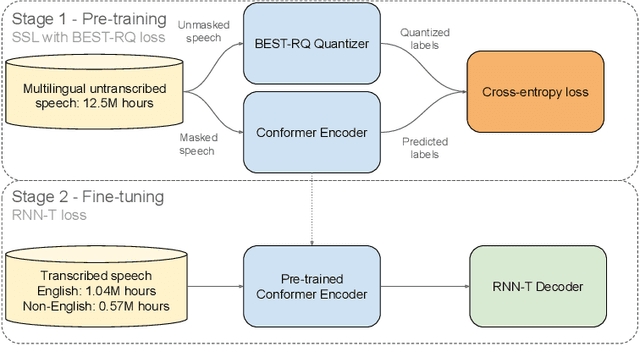


Abstract:This paper describes AssemblyAI's industrial-scale automatic speech recognition (ASR) system, designed to meet the requirements of large-scale, multilingual ASR serving various application needs. Our system leverages a diverse training dataset comprising unsupervised (12.5M hours), supervised (188k hours), and pseudo-labeled (1.6M hours) data across four languages. We provide a detailed description of our model architecture, consisting of a full-context 600M-parameter Conformer encoder pre-trained with BEST-RQ and an RNN-T decoder fine-tuned jointly with the encoder. Our extensive evaluation demonstrates competitive word error rates (WERs) against larger and more computationally expensive models, such as Whisper large and Canary-1B. Furthermore, our architectural choices yield several key advantages, including an improved code-switching capability, a 5x inference speedup compared to an optimized Whisper baseline, a 30% reduction in hallucination rate on speech data, and a 90% reduction in ambient noise compared to Whisper, along with significantly improved time-stamp accuracy. Throughout this work, we adopt a system-centric approach to analyzing various aspects of fully-fledged ASR models to gain practically relevant insights useful for real-world services operating at scale.
Challenges and Applications of Large Language Models
Jul 19, 2023Abstract:Large Language Models (LLMs) went from non-existent to ubiquitous in the machine learning discourse within a few years. Due to the fast pace of the field, it is difficult to identify the remaining challenges and already fruitful application areas. In this paper, we aim to establish a systematic set of open problems and application successes so that ML researchers can comprehend the field's current state more quickly and become productive.
Adversarial Training for Satire Detection: Controlling for Confounding Variables
Mar 01, 2019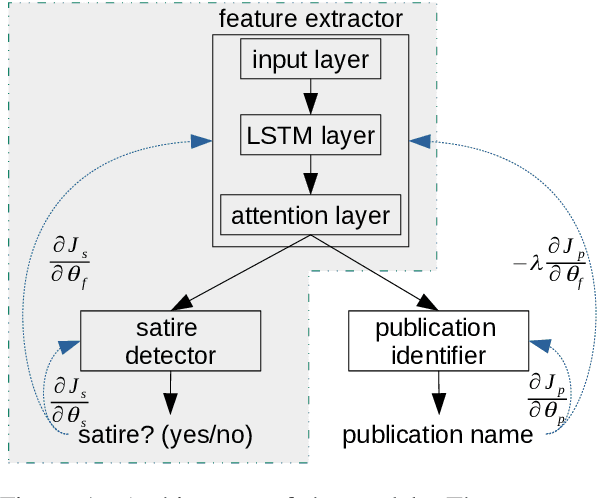
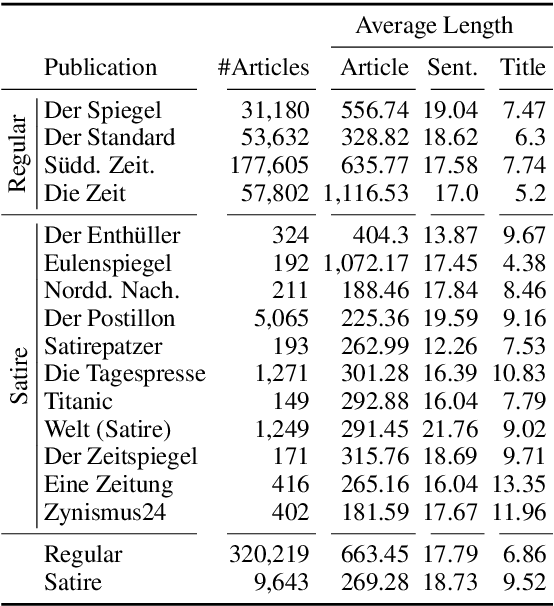
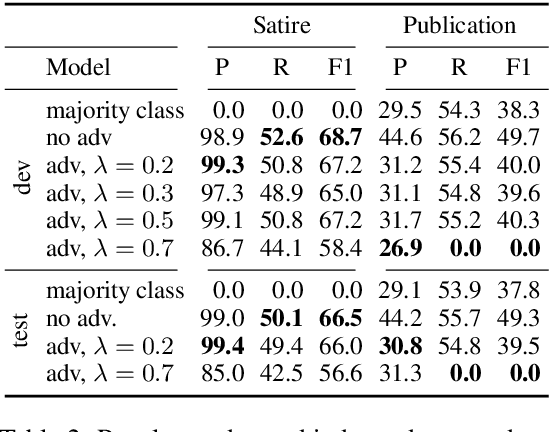
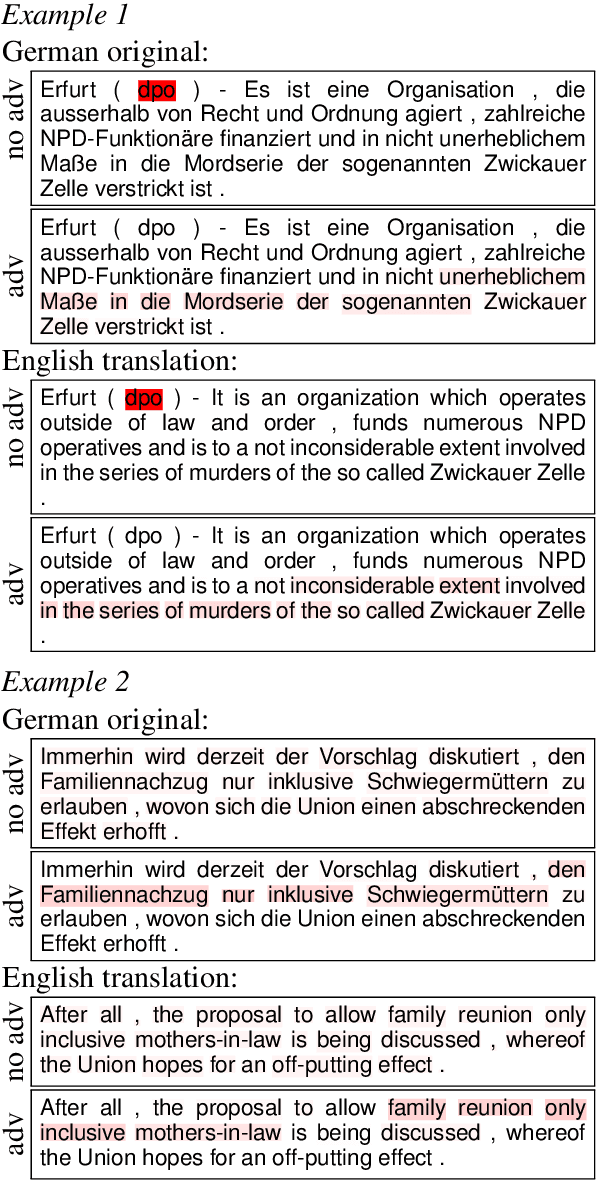
Abstract:The automatic detection of satire vs. regular news is relevant for downstream applications (for instance, knowledge base population) and to improve the understanding of linguistic characteristics of satire. Recent approaches build upon corpora which have been labeled automatically based on article sources. We hypothesize that this encourages the models to learn characteristics for different publication sources (e.g., "The Onion" vs. "The Guardian") rather than characteristics of satire, leading to poor generalization performance to unseen publication sources. We therefore propose a novel model for satire detection with an adversarial component to control for the confounding variable of publication source. On a large novel data set collected from German news (which we make available to the research community), we observe comparable satire classification performance and, as desired, a considerable drop in publication classification performance with adversarial training. Our analysis shows that the adversarial component is crucial for the model to learn to pay attention to linguistic properties of satire.
 Add to Chrome
Add to Chrome Add to Firefox
Add to Firefox Add to Edge
Add to Edge